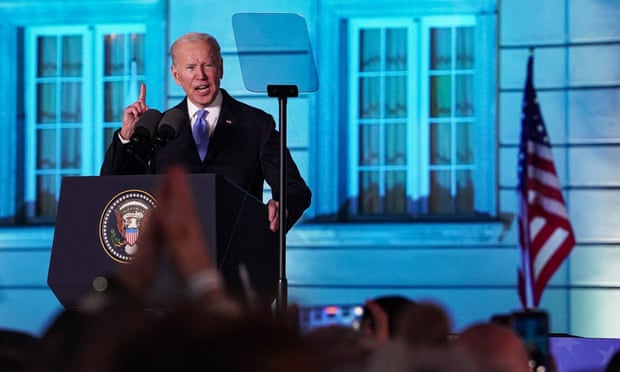At This Delicate Juncture, the US Is Inconsistent
On March 14, when U.S. and Chinese senior officials held meetings for the first time in several months, the U.S. took the opportunity to play director and actor in its own staged farce. The day before, claims from “anonymous U.S. officials” were cited across Western newspapers saying Russia had sought military and economic assistance from China. Subsequently, U.S. media reported that U.S. National Security Advisor Jake Sullivan expressed concerns at the China-U.S. talks that “Beijing may attempt to help Russia reduce the impact of international sanctions.”* White House press secretary Jen Psaki stated that if China provided military or other assistance, "there will be significant consequences.” China responded immediately, refuting this groundless accusation.
While all parties were anticipating success from the China-U.S. talks about alleviating the Ukraine crisis, the U.S. staged its “pride and prejudice” farce, revealing ulterior motives.
When it comes to determining the role the U.S. wishes China to play in the Ukraine crisis, U.S. motives are contradictory, and the U.S. comes across as inconsistent. Ukraine’s prospects are dim, and Western nations such as the U.S. and Europe have been unable to break the impasse; thus, on the one hand, the West hopes China will mediate the Ukraine crisis.
Relations between the West and Russia have completely broken down during this crisis. Both sides have continuously ramped up sanctions. Swords have been drawn and neither side has been willing to yield. By contrast, China has always maintained a policy of balance and neutrality while being committed to the international community and promoting peace and communication. As a permanent member of the United Nations Security Council, China has always approached this conflict as a responsible power. China's ability to mediate is unmatched by other nations.
Furthermore, China’s approach to the situation is to respond to reasonable concerns, both respecting Russia’s security interests and respecting Ukraine's sovereignty and territorial integrity. China is proactively providing humanitarian aid. China seeks construction of a balanced, effective and sustainable security mechanism. These propositions offer what those other nations, clamoring to pick sides in the conflict, do not.
On the other hand, the U.S. is extremely reluctant to see China mediate the security situation in Europe, which would result in China exerting and further expanding its international influence.
Although Russia and Ukraine are the parties that are immediately involved in the Russia-Ukraine conflict, U.S. and Russian geopolitical objectives are at its core. The U.S. and Russia are still the real key drivers. Currently, the U.S. superficially appears to be staying out of the conflict, but it is fanning the flames and is delighted to see it escalate.
By U.S. calculations, the resounding rumble of cannon fire in Ukraine is testimony to the “Russian threat.” This is both causing Europe to cower and weakens Russia. The U.S. is playing both sides against each other and reaping the benefits.
Because the situation has reached a deadlock and sanctions have ratcheted up, Europe now faces far greater economic, energy, refugee and security burdens than the U.S. does. As a rift between Europe and the U.S. subtly emerges, there are increasing calls from within Europe for China to intervene and mediate. French and German leaders took the initiative to discuss finding a diplomatic solution with China. High Representative of the European Union for Foreign Affairs and Security Policy Josep Borrell even wrote an article imploring China to intervene and mediate.
However, how happy would the U.S. be to see China, which it has characterized as its "biggest strategic competitor," expand its international influence? In an attempt to portray Russia and China as intertwined, the U.S. has fabricated a “Russia seeks military and economic aid from China” narrative. While subjecting Russia to long-term and complete isolation, the U.S. is seeking to pressure China to relinquish its neutral position and force it to choose sides. To do so would interfere with and undermine China’s strategic interests. Of course, if the U.S. succeeds in using this opportunity to destructively drive a wedge between Russia and China, it could kill two birds with one stone: it could simultaneously strike a blow against China and Russia. This is precisely America's objective.
Until now, the situation in Ukraine has been the inextricable result of long-term strategic mistakes by the U.S. and Europe. As China has maintained, sanctions do not resolve any issues, but only create new ones. If the U.S. were able to forswear its "pride and prejudice" and pursue practical initiatives to promote negotiations between all parties, this would be the way to a cease-fire and an end to the war.
*Editor’s note: Although accurately translated, this quote could not be independently verified.

